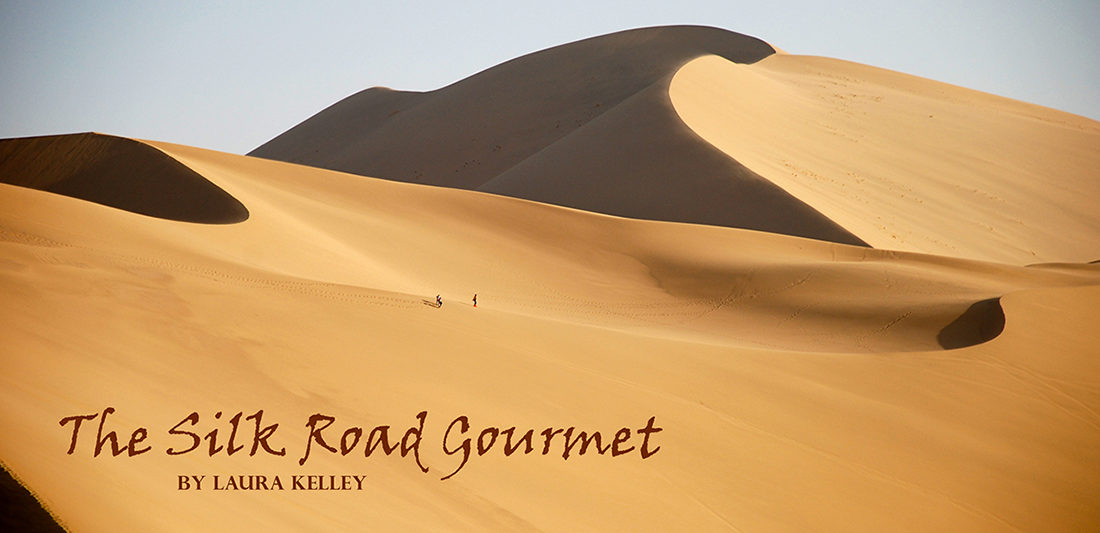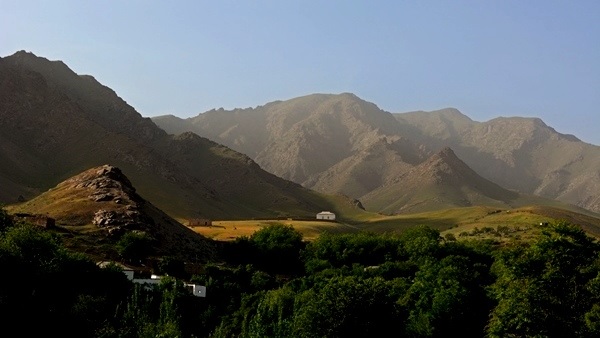I’ve just returned from a homestay in a small mountain village in Uzbekistan’s Nurata mountains. For a couple of days, I was welcomed into the life of a family in a small house perched amongst steep rocky hills. Sitting on the porch of the house, one can hear a symphony of birds with occasional accompaniment from barking dogs, lambs calling for their mothers and donkeys braying in the valley below.
When our car pulled into the village the eldest son of our host greeted us and led us to the house up a narrow and sometimes steep unpaved road. When the road became too difficult to drive, we walked the rest of the way up to the house. Trees dripping with mulberries and young walnuts – the cash crop of the village – hung over a swift running stream fed by a mountain spring.
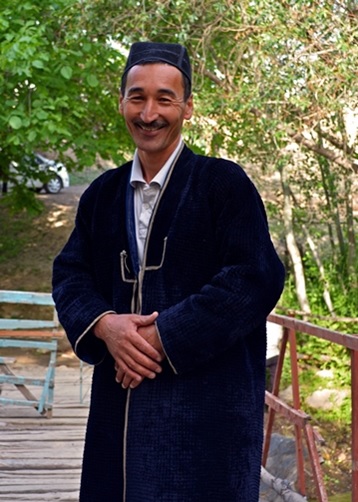
Our host met us and ushered us across a planked bridge and up some steep steps to his home. When we arrived, his wife was busy already preparing dinner and met us later.
Most of the meal was cooked on an outdoor wood-fired stove with a pot inset into the stove. The pot was generally shaped like a wok, with steeper sides. In the photo below you can also see an Uzbek tandyr oven used for baking bread and roasting meat. Like the cylindrical, vertical tandoori ovens, it gets blazingly hot. There was also a smaller indoor stove – also wood fired – used for heating water, steaming and boiling foods.
As with all Uzbek meals, it began and ended with an endless pot of green tea. Accompanying the tea were small dishes of red-skinned peanuts mixed with local walnuts and raisins; and a selection of cookies and candy. We ate outside, which is done whenever weather allows. Breakfasts tend to be eaten inside because of the chill in the air, but lunch and dinner are taken au plein air.
Just before dinner, our host pulled out a small bottle of medicinal vodka and poured us all a glass – for our health. Bread and salads came first. The naan was different from city bread and made from a coarsely ground flour with no yeast. Hot and delicious, no meal is complete in this country without it. One of the salads was the usual chopped tomatoes, cucumbers and onions with dill, salt and just a hint of dilute white vinegar. Another salad had rice noodles and with just a few diced tomatoes and onions and similar seasoning. Uzbek tomatoes are large, flavorful and meaty and lack the acidity often found in tomatoes in the west. They are also very juicy, but it is contained by the flesh of the fruit and it is easy (and not messy at all) to eat them on the fly like an apple as I love to do.
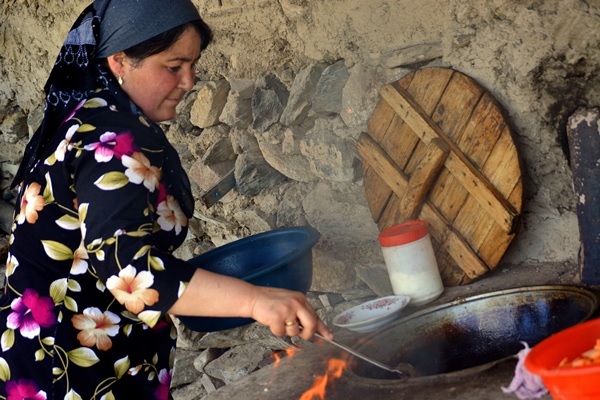
Uzbeks do love their yogurt and it is served with every meal. This being no exception, there was a medium size bowl of watery yogurt flavored with green onions, garlic and salt. This can be a community bowl for dipping naan or one can pour it into a tea bowl and sip it along with the meal. Another type of yogurt on the table was a yogurt cream with lots of dill, garlic and salt in it for a great blast of flavor. The yogurt was homemade and although wonderfully sour was also creamy and many degrees gentler than the now popular-in-the-west Greek yogurt. The center of dinner was a type of Dimlama – large hunks of beef on the bone, stewed with chunks of potatoes and sliced carrots and onions. Seasoning was mild: a little fresh dill, a little pepper, a little ground cumin and coriander and salt. This dish had a thin, brothy, sauce that was delicious with the naan.
When we were nearly stuffed to the brim, our host’s brother sent his daughter up with a large plate of pilaf – or plov – rice with lots of carrots and onions topped with a bit of beef dripping off the bone. We tucked into it and finished about half before settling back in our chairs to watch the stars come out overhead.
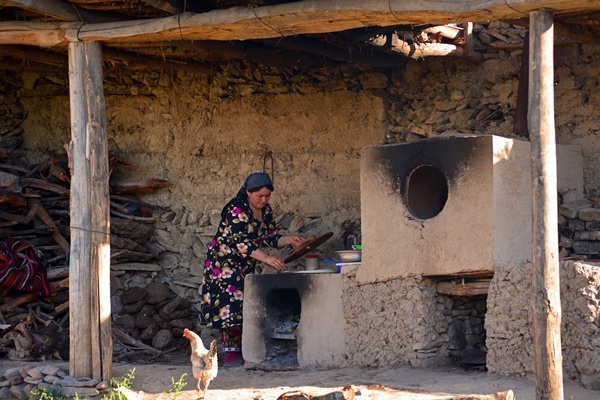
We were treated to some sweet, sad songs on one of Central Asia’s stringed instruments the rawap* by our host. He sang an old Tajik song to remind us to appreciate what we have in life – when we have it. In a repetitive verse, he sang that when you have children, you don’t appreciate them. It is only when they are grown and gone that you realize what a wonder they were. In turn, we were also reminded to savor love, health, and life. Something that is easy to do under the stars in paradise.
(All words and photos by Laura Kelley.)
